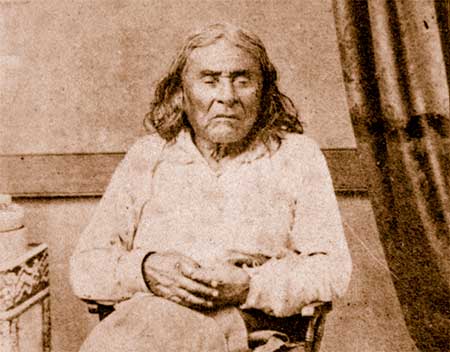 When one talks about entrepreneurship in Washington State, Seattle deserves more than a mention or two.
When one talks about entrepreneurship in Washington State, Seattle deserves more than a mention or two.
No, not Seattle, the city. Seattle, the chief.
Seattle (siʔał in his tribe’s language), it turns out, was Washington’s very first entrepreneur. The chief of the Duwamish and Suquamish tribes, Seattle was one of the main reasons Seattle (the city) flourished in its earliest years.
When President Fillmore signed a land grant into law in 1850 giving every white male aged 21 and older 320 acres of free land out west, the floodgates of Western expansion opened in what was then the Oregon Territory.
While it didn’t seem to occur to anyone that the region was already inhabited by thousands of native residents, Seattle saw the arrival of white settlers as an opportunity to increase his political and economic clout in the region.
When traders landed that fall on the shores of Elliott Bay, they were met by hundreds of natives who poured from their longhouses brandishing knives, shooting guns and shouting loudly.
Things were not looking good.
With seemingly perfect timing, Seattle stepped forward to welcome the traders as friends and invite them to witness a secret-society initiation in the ceremonial house. Unknown to the men at the time, Seattle, ever the
To further influence his economic fortunes and destiny, the chief set up shop in the Olympia area, which had been designated the official point of entry for settlers. Not far from the new customs house, 20 Duwamish tents lined Chinook Street. There, Seattle advertised himself and his people as tour guides and a source of labor for the new arrivals.
Without his entrepreneurial skills, Olympia could have well have become Washington’s biggest city. But Seattle had other ideas, offering his freight canoe so newcomers could see land a little farther to the north.
Students in Washington are often taught that members of the Denny party were the first white settlers to establish a claim in what is now West Seattle. They were the first seeking to start a township, but other pioneers had already arrived in the Puget Sound region.
One of these pioneers was Robert Fay, a ship’s captain
Seattle provided the workforce in exchange for bartered goods supplied by Fay. It’s estimated that as many as 700 natives gathered during the season to fish and process Chinook, gutting and cutting the salmon before placing them in wooden barrels filled with brine, ready to be loaded aboard ships bound for San Francisco and the gold rush. Long before lumber, coal
Exports still drive the region’s economy, as does an entrepreneurial spirit that appears to run very deep, dating back to the earliest days of Washington State. All thanks to Chief Seattle.
It wasn’t always smooth sailing, of course. The idea of owning land was foreign to the natives who readily shared natural resources. To them, the land was to be shared, not owned by a particular person. On more than one occasion, pioneers were surprised to find members of the tribe had helped themselves to household goods. It seems that trespassing was an equally unfamiliar concept.
Besides being an entrepreneur, Seattle was ahead of his time culturally. He firmly believed that the quickest way to promote economic growth and stability was to ensure that the new settlers and native people were interdependent. Interracial marriages were quite common, as were mutually beneficial business partnerships. Natives worked right beside the city’s founders clearing timber, building houses, and bartering with clams, cranberries and duck down in exchange for trade goods such as blankets, clothing
Seattle’s efforts in helping the settlers establish a bustling pioneer community did not go unnoticed. Wanting to honor the chief, city founders asked if they could name it Seattle.
The chief, however, didn’t think of it as an honor. According to Hezekiah Butterworth, the Seattle once told a fellow settler that, “the name of the town will call me back after I am dead and make me unhappy. I want my pay for what I shall then suffer now.”
History did not record what the final honorarium was, but whatever the amount, it was well worth it. Today, Seattle is the largest city in the world named after a Native American and its entrepreneurial spirit and vitality are renowned throughout the world. A spirit that is due in large part to a visionary native chief who saw opportunity where there was challenge, and possibility where there was adversity.